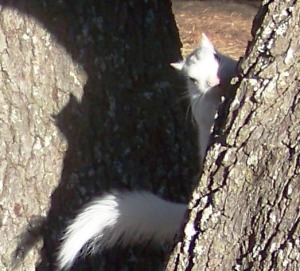Extrapolate. It’s what’s possible when truth is present, which it is not in these days of COVID-19, not completely.
As always, there are exceptions such as New York Governor Cuomo’s daily press conferences. New York is a state and a city whose Adirondack mountains and Met opera I know only virtually, now the predominate means of viewing all life. So, I extrapolate to get a view of the state of my Florida, which I once traveled up and down and back-and-forth, as I did my own city of Tallahassee. No more.
 No doubt my view of the news is skewed but I have a sense of comfort, an overall understanding, and that’s enough. What happens in New York City is not the scene in Tallahassee, we don’t have the numbers, but Miami creeps closer every day, and they must extrapolate, too, because they don’t have enough tests for their own numbers. Unlike the rest of the country, New York does have tests.
No doubt my view of the news is skewed but I have a sense of comfort, an overall understanding, and that’s enough. What happens in New York City is not the scene in Tallahassee, we don’t have the numbers, but Miami creeps closer every day, and they must extrapolate, too, because they don’t have enough tests for their own numbers. Unlike the rest of the country, New York does have tests.
It is a virus unlike any other, one that literally takes the breath away as it gobbles up the way we once lived. Now we know the meaning of what can happen when a virus jumps from another species to ours. The only way to sustain life is to stay away from each other.
Even the word quarantine has a hard sound to it, as if social distancing were a punishment, which it is not. It’s a different life lens. It’s the view we have when life changes from what it was.
I really do know something about this as I’ve been social distancing for 10 years. It happened gradually, for one health reason or another, distancing myself from large gatherings, shopping the early morning weekday hours, giving up long distance travel. My immune system is compromised as is my spinal cord. It is best for me to keep my distance, less chance of falling or getting the flu.
Acceptance arrived but it took its time, as it is wont to do. Ask anyone you know who lives a differently abled life and they will tell you that binging anything–movies, TV shows, podcasts, gaming, reading, audiobooks–is not a way of life. Each is a welcome distraction from the discomfort of being disabled but not a one is life itself.
In Randall Jarrell’s poem, “The Sick Child,” a young boy confined to bed and beyond boredom cries out, “all that I’ve never thought of, think of me!” I first came across the poem when I was teaching college English in Wyoming, a lifetime away from the moment that all I never thought of, think of me would become my mantra. Then, I was in my mid 30s believing remission was forever, as if anything ever is. Yet, there was so little I didn’t know. Mostly, I had an answer for everything because magical thinking works like that.
Now I know nothing but opening myself to the reality of each day, whatever it maybe. I cannot possibly know what I need until the day dawns, as if it were that easy. My mind will not still the scenes of who I was or where I once walked. It insists on showing.
Sometimes, it’s the crushingly cold mountain streams of Wyoming where wind will steal the breath away. None of its bouldered paths will I walk again, gasping for breath above timberline, cursing at the caught tip of my flyrod in the ponderosa pine on my way to a lake that was once snow. No less in my mind are the woodlands of live oak and longleaf pine, sandy soft roads of shell and sandstone, sabal palm, and the shores of Saint George Island.
Florida and Wyoming, so physically distant and forever together virtually, sometimes so much so it hurts and then angers. With a ferocity of focus I cry out, “all I never thought of think of me!” It’s the words on the air that make the fury fade, as the energy of emotion reorganizes, evens itself out.
Something I never thought of does comes to me, not so much life changing but a broader perspective like Pema Chodron’s we are always in  relationship, even with the insect in the room. So, a change in perspective. Tunnel vision does tend to skew. None of life is perfect. There are cracks everywhere–they’re how we cope–these streaks of hope in a time of novel coronavirus.
relationship, even with the insect in the room. So, a change in perspective. Tunnel vision does tend to skew. None of life is perfect. There are cracks everywhere–they’re how we cope–these streaks of hope in a time of novel coronavirus.
It’s closing the window of what cannot be and opening the door of what is, meeting reality with equanimity, no longer blind by wishing and wanting. That is viewing life through a new lens. It is the past that takes us to the door of the present but it knows its place. Here, we live. There, we remember.
So much life, so many lenses.







